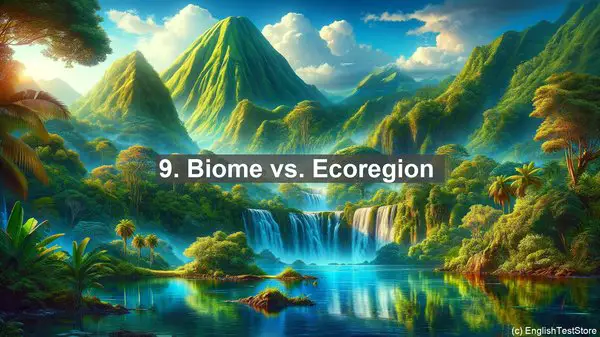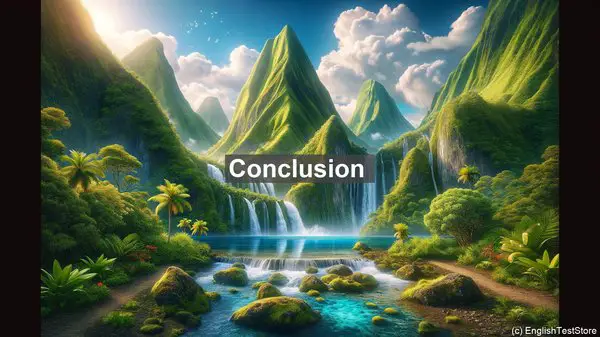Introduction
Welcome to today’s lesson on biogeography. In this lesson, we’ll be discussing the top 10 commonly confused words in this field. Understanding these terms is crucial for a comprehensive grasp of biogeography. So, let’s dive in!

1. Endemic vs. Native
The terms ‘endemic’ and ‘native’ are often used interchangeably, but they have distinct meanings. ‘Endemic’ refers to a species that is exclusively found in a particular region, while ‘native’ indicates a species that naturally occurs in an area. So, while all endemics are natives, not all natives are endemics.
2. Migration vs. Dispersal
Migration and dispersal both involve the movement of organisms, but they differ in purpose and scale. ‘Migration’ refers to the regular, often seasonal, movement of a species from one place to another, usually for breeding or feeding. ‘Dispersal,’ on the other hand, is a one-time movement of individuals away from their place of birth, often to establish new populations.
3. Habitat vs. Niche
While ‘habitat’ refers to the physical environment where a species lives, ‘niche’ encompasses not only the habitat but also the species’ role, interactions, and adaptations within that environment. In simple terms, habitat is the address, while niche is the species’ occupation and lifestyle.
4. Biotic vs. Abiotic
The terms ‘biotic’ and ‘abiotic’ are used to describe the living and non-living components of an ecosystem, respectively. Biotic factors include plants, animals, and microorganisms, while abiotic factors encompass things like temperature, sunlight, soil, and water. Both biotic and abiotic factors are essential for the functioning of an ecosystem.
5. Community vs. Ecosystem
A ‘community’ refers to the assemblage of different populations of species living in the same area and interacting with each other. An ‘ecosystem,’ on the other hand, includes not only the community but also the physical environment and the various interactions between the biotic and abiotic components.
6. Immigration vs. Emigration
These terms are often confused, but they are essentially opposite actions. ‘Immigration’ refers to the movement of individuals into a population, while ’emigration’ is the movement of individuals out of a population. Think of it as ‘immigration’ into a country and ’emigration’ out of a country.
7. Species vs. Speciation
A ‘species’ is a group of organisms that can interbreed and produce fertile offspring. ‘Speciation,’ on the other hand, is the process by which new species arise. It involves various mechanisms, such as geographic isolation, genetic divergence, and reproductive barriers.
8. Extinction vs. Extirpation
While both terms refer to the disappearance of a species, they differ in scale. ‘Extinction’ is the complete loss of a species from the entire planet, like the dinosaurs. ‘Extirpation,’ on the other hand, is the local extinction of a species in a specific geographic area, but it may still exist elsewhere.
9. Biome vs. Ecoregion
A ‘biome’ is a large-scale, global ecosystem characterized by distinct climate, vegetation, and animal life. Examples include deserts, rainforests, and tundras. An ‘ecoregion,’ on the other hand, is a smaller, more localized area within a biome, with its own unique ecological characteristics.
10. Adaptation vs. Acclimation
Both terms refer to an organism’s response to its environment, but they differ in time scale and permanence. ‘Adaptation’ is a long-term, evolutionary process that results in heritable changes in a species’ traits, enabling it to survive and reproduce in its environment. ‘Acclimation,’ on the other hand, is a short-term, reversible adjustment to environmental changes.

